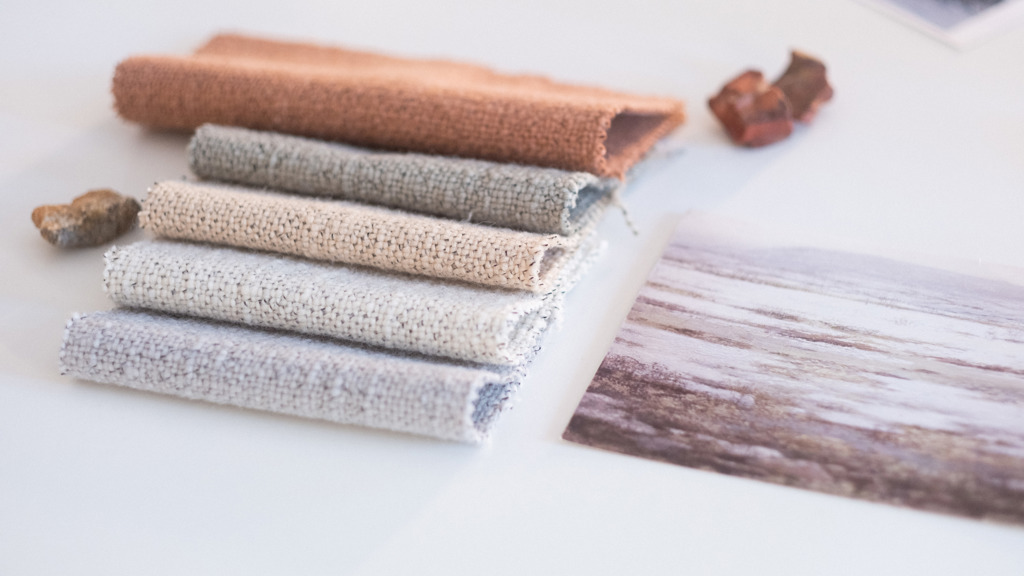Lyngdal is a study of craft and of all the qualities that makes a fabric unique: a chunky slub yarn, twisted with a smooth, thin, black thread. The plain weave lets the structure of the threads stand out, and the meeting of thinner and thicker sections of the yarns create a subtle, random pattern in the fabric.
Lyngdal
Design: GU Design Team / Ragnhild Nordhagen / Inspired by Pia Bjørnstad
-
Article no. 5330 Composition 99% wool / 1% polyamide Weight 980 g/m Width 140 cm -
Durability (rubs on Martindale) 100,000 Fastness to light (1-8) 5-7 Resistance to rubbing dry state (1-5) 4 Resistance to rubbing wet state (1-5) 3-4 Wheelmark Yes EU Ecolabel Yes Flame resistance FTP Code: Part 8 (IMO)
EN ISO 1021: Part 1+2
-
Wool textiles have good, natural water-repellent properties, which mean that it is easy to clean. We recommend focusing on regular maintenance and cleaning of our fabrics. Below you can download our maintenance guide, which also contains recommended cleaning methods.
Download care guideProfessional dry-cleaning Vacuuming Iron at moderate temperature Do not wash Do not bleach Do not tumble dry
- A
- = In stock / MOQ 1 m
- B
- = Del 4-6 weeks / MOQ 1 m
- C
- = On request
Colour Palette

Inspiration
Lyngdal is a study of craft and of all the qualities that makes a fabric unique: a chunky slub yarn, twisted with a smooth, thin, black thread.
This randomness is something we recognize from nature. Very few things in nature are streamlined or perfect, thankfully. Nature seems to have unevenness ingrained: dents, twists – wonky little details that are interesting to the eye, and that challenge our minds to connect to our environment.
Imperfections such as a leaning tree, the trunk twisted by perpetual winds on the high hills. Or the way a meandering river have wider and narrower sections where the water swirls in twists and turns. How water shapes the landscape over years and years, carves itself into stone. How a pine can live for thousands of years through its root system. The name «Lyng» means «heather» or «ling». The plants are frugal. They tend to grow in hard-weather locations far up in the mountains and out towards the coast. They are hardy and easy to care for, and is a reflection of the aesthetics Lyngdal presents.
Technical Qualities
This is a durable textile with good weight that can withstand a lot. 1 kg of wool per meter is used in the production of Lyngdal. The plain weave lets the structure of the threads stand out, and the meeting of thinner and thicker sections of the yarns create a subtle, random pattern in the fabric.







